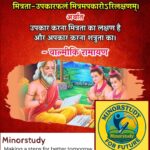📚 7 Inspiring Truths About Munshi Premchand That Will Brighten Every Indian’s Soul
“Only those who remain dedicated to their duties achieve good fortune.”
— Munshi Premchand
This line by Munshi Premchand Ji, India’s most celebrated literary realist, is a reminder that hard work, integrity, and devotion form the core of human progress. Known as the “Upanyas Samrat” (Emperor of Novels) in Hindi literature, Premchand brought the common man’s struggle, hopes, and morality into the literary spotlight.
- 🧔 Who Was Munshi Premchand?
- 📜 Timeline of Munshi Premchand’s Life
- 📚 Literary Legacy: The Voice of the Voiceless
- 🧠 7 Inspiring Truths About Munshi Premchand
- 1. 💬 Spoke the Language of the Poor
- 2. 🧑🏫 Used Literature as a Social Weapon
- 3. ✊ Practiced What He Preached
- 4. 💔 Wrote from Personal Struggle
- 5. 🔥 Braved Censorship and Repression
- 6. 📚 Believed in the Power of Knowledge
- 7. 🌾 Chronicled India’s Soul
- 📍 Importance in Daily Life
- 🌍 Societal Significance
- 📆 Observance and Legacy
- 🙏 Heartfelt Wishing Message
- ❓ FAQs About Munshi Premchand
- Q1: Why is Munshi Premchand called “Upanyas Samrat”?
- Q2: What is the most famous novel of Premchand Ji?
- Q3: Did he support Gandhiji?
- Q4: Was Premchand ever awarded?
- Q5: Where can I read his books?
- 💬 Conclusion: The Duty-Driven Light of Indian Literature
Let’s explore the rich life, timeless work, and powerful teachings of Munshi Premchand Ji — a writer whose stories still brighten our conscience and society.
🧔 Who Was Munshi Premchand?
| Attribute | Details |
|---|---|
| Real Name | Dhanpat Rai Srivastava |
| Pen Name | Munshi Premchand |
| Birth | 31 July 1880, Lamhi village, Varanasi |
| Death | 8 October 1936, Varanasi |
| Language | Hindi, Urdu |
| Genre | Social realism, rural India, poverty, morality |
| Occupation | Writer, Teacher, Editor |
📜 Timeline of Munshi Premchand’s Life
| Year | Event |
|---|---|
| 1880 | Born in Lamhi village, near Varanasi |
| 1898 | Became a school teacher |
| 1907 | Published stories in Urdu under the pen name “Nawab Rai” |
| 1910 | Adopted the pen name “Premchand” to avoid British censorship |
| 1919 | Published Sevasadan, his first major Hindi novel |
| 1921 | Resigned government job during Non-Cooperation Movement |
| 1936 | Died in Varanasi after completing his last novel Godaan |
📚 Literary Legacy: The Voice of the Voiceless
✍️ Major Novels:
Sevasadan (1919): A bold take on women’s social status
Premashram (1922): Focus on rural injustice and zamindari
Nirmala (1927): A heartbreaking tale of child marriage
Karmabhumi (1932): Revolves around Gandhi’s ideals
Godaan (1936): His magnum opus — deals with caste, debt, and social oppression
📝 Short Story Gems:
Panch Parmeshwar: Justice with empathy
Poos Ki Raat: A farmer’s bitter winter reality
Eidgah: The sacrifice of a child for his grandmother
Shatranj Ke Khiladi: Decay of the aristocracy through chess
🧠 7 Inspiring Truths About Munshi Premchand
1. 💬 Spoke the Language of the Poor
Premchand moved away from Sanskritized or royal literature and gave voice to laborers, farmers, widows, and servants.
2. 🧑🏫 Used Literature as a Social Weapon
He tackled child marriage, dowry, British imperialism, casteism, and gender inequality, long before they became public debates.
3. ✊ Practiced What He Preached
During the Non-Cooperation Movement, he left his government job in protest against colonialism — sacrificing his income for national duty.
4. 💔 Wrote from Personal Struggle
He lost both parents by his teens and faced extreme poverty — yet he never gave up on education or writing.
5. 🔥 Braved Censorship and Repression
His Urdu book Soz-e-Watan was banned by the British. He fearlessly switched to Hindi and continued writing.
6. 📚 Believed in the Power of Knowledge
He emphasized that education is not just literacy, but moral development. In many stories, wisdom is the real wealth.
7. 🌾 Chronicled India’s Soul
From village life to revolutionaries, Premchand captured India’s evolving consciousness like no other author.
📍 Importance in Daily Life
| Area | Impact of Premchand’s Teachings |
|---|---|
| Relationships | Encourages empathy, sacrifice, and understanding |
| Work & Duty | Promotes honesty, consistency, and service-mindedness |
| Education | Stresses learning with values, not just marks |
| Social Outlook | Builds awareness about caste, gender, and class injustice |
| Patriotism | Inspires courage, ethics, and resistance to exploitation |
🌍 Societal Significance
Humanized Rural India: At a time when urban elites dominated literature, he showed the real India — fields, huts, weavers, debtors, and women.
Bridged Urdu and Hindi: Wrote fluently in both languages, promoting linguistic unity.
A Catalyst for Social Reform: Influenced freedom fighters, reformers, and modern Indian law and thought.
Inspired Future Writers: Namvar Singh, Harivansh Rai Bachchan, Manto, and others saw Premchand as a literary foundation.
📆 Observance and Legacy
31st July is celebrated as Munshi Premchand Jayanti across India.
Schools, colleges, and literary circles conduct:
Essay and story competitions
Dramas and stage performances of his stories
Public readings of Godaan, Nirmala, and Poos Ki Raat
His works are part of the national school curriculum and translated into over 20+ languages.
🙏 Heartfelt Wishing Message
🌼 On Munshi Premchand Jayanti, may his words awaken the conscience within us.
📖 Let his stories be not just tales of the past, but mirrors to our present.
🕊️ May we carry forward his legacy of truth, simplicity, and fearless writing.
❓ FAQs About Munshi Premchand
Q1: Why is Munshi Premchand called “Upanyas Samrat”?
Because he was a pioneer of realistic and socially-relevant Hindi-Urdu novels, unmatched in emotional depth and social critique.
Q2: What is the most famous novel of Premchand Ji?
“Godaan” is considered his finest — it portrays the pain of Indian farmers and the hypocrisy of social structures.
Q3: Did he support Gandhiji?
Yes, through Karmabhumi and many essays, Premchand supported Gandhian ethics, non-violence, and Swadeshi.
Q4: Was Premchand ever awarded?
He wasn’t formally awarded in his lifetime, but his legacy is celebrated by Sahitya Akademi, NCERT, and global universities today.
Q5: Where can I read his books?
His books are available in:
NCERT Textbooks
Libraries & eBook platforms
Translations on Amazon Kindle, Project Gutenberg, and Indian Literature portals
💬 Conclusion: The Duty-Driven Light of Indian Literature
Munshi Premchand’s writings remain more than stories — they are moral compasses for every Indian. In a world rushing after fame and wealth, he reminds us that good fortune comes only through duty.
Let’s read him, reflect on him, and teach our children not just to admire Premchand, but to live by the truths he penned with pain and passion.








